Daily Vocabulary Words: List of Daily Used Words in Leading International Newspapers
Hi there. Welcome to this special section @ Wordpandit.
Our endeavour here is very simple: to highlight important daily vocabulary words, which you would come across in leading newspapers in the country. We have included the following newspapers in our selection:
• The New York Times
• The Washington Post
• Scientific American
• BBC
• The Guardian
• Psychology Today
• Wall Street Journal
• The Economist
We are putting in extensive work for developing your vocabulary. All you have got to do is be regular with this section and check out this post on a daily basis. This is your repository of words that are commonly used and essentially, we are posting a list of daily used words. Hence, this has significant practical application as it teaches you words that are used commonly in leading publications mentioned above.
Visit the website daily to learn words from leading international newspapers.
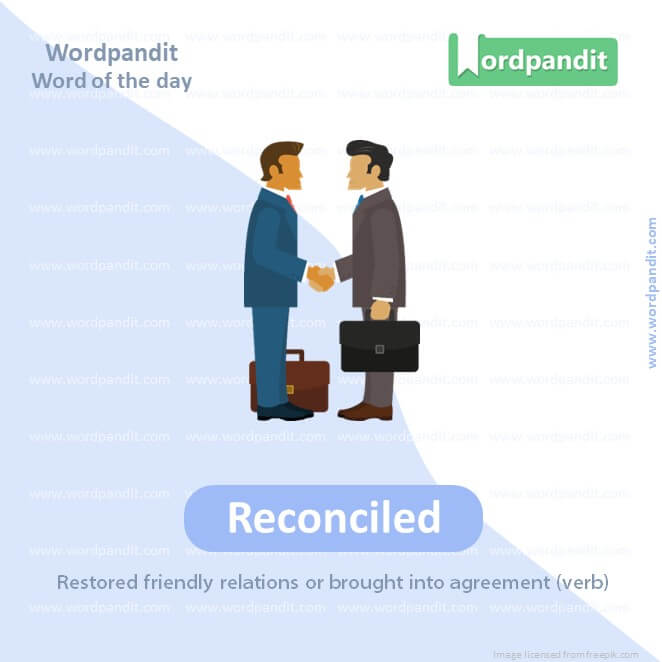
WORD-1: Reconciled
CONTEXT: the welfarist and the liberal – can be reconciled more creatively in the future than they have been in the past.
SOURCE: Guardian
EXPLANATORY PARAGRAPH: Reconciled is like when you and your friend have a fight but then say sorry and become friends again. It means to make up and be in a friendly relationship again after there has been a disagreement.
MEANING: Restored friendly relations or brought into agreement (verb).
PRONUNCIATION: REK-un-syled
SYNONYMS: Resolved, Settled, Mended, Repaired, Harmonized
USAGE EXAMPLES:
1. They finally reconciled after their big argument.
2. The two countries reconciled their differences.
3. She reconciled her work and family life successfully.
4. Reconciled with his past, he looked forward to a brighter future.
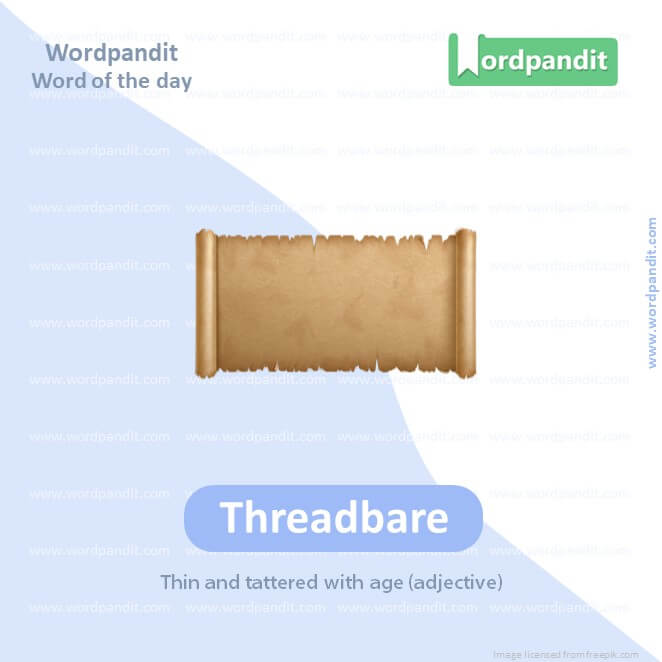
WORD-2: Threadbare
CONTEXT: would be better employed rethinking their doctrines than trying to win the party to what are, by now, rather threadbare ideas”.
SOURCE: Guardian
EXPLANATORY PARAGRAPH: Threadbare is like your favorite teddy bear that’s old and worn out from lots of hugs and play. It means something is thin and old because it has been used a lot.
MEANING: Thin and tattered with age (adjective).
PRONUNCIATION: THRED-bair
SYNONYMS: Worn, Frayed, Ragged, Shabby, Tattered
USAGE EXAMPLES:
1. His old coat was threadbare but still warm.
2. The threadbare rug had seen better days.
3. Her threadbare jeans were her favorite.
4. The book’s cover was threadbare from much use.
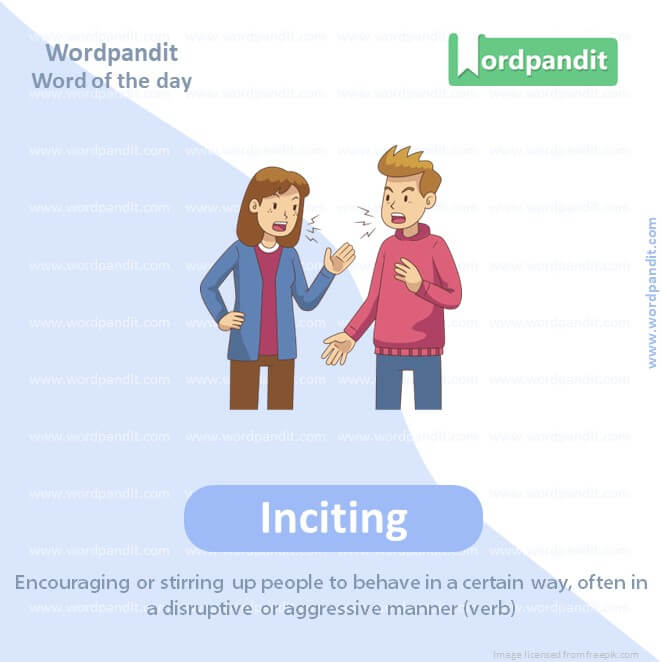
WORD-3: Inciting
CONTEXT: the inciting incident then sets the parameters of all the discussion to follow
SOURCE: Guardian
EXPLANATORY PARAGRAPH: Inciting is like when someone whispers to others to start a game of tag. It means to encourage or stir up people to do something, especially something bold or rebellious.
MEANING: Encouraging or stirring up people to behave in a certain way, often in a disruptive or aggressive manner (verb).
PRONUNCIATION: in-SYTE-ing
SYNONYMS: Provoking, Stirring up, Spurring, Instigating, Rallying
USAGE EXAMPLES:
1. The leader was accused of inciting violence.
2. His speech was inciting the crowd to protest.
3. The article was criticized for inciting hatred.
4. She was known for inciting lively debates in class.
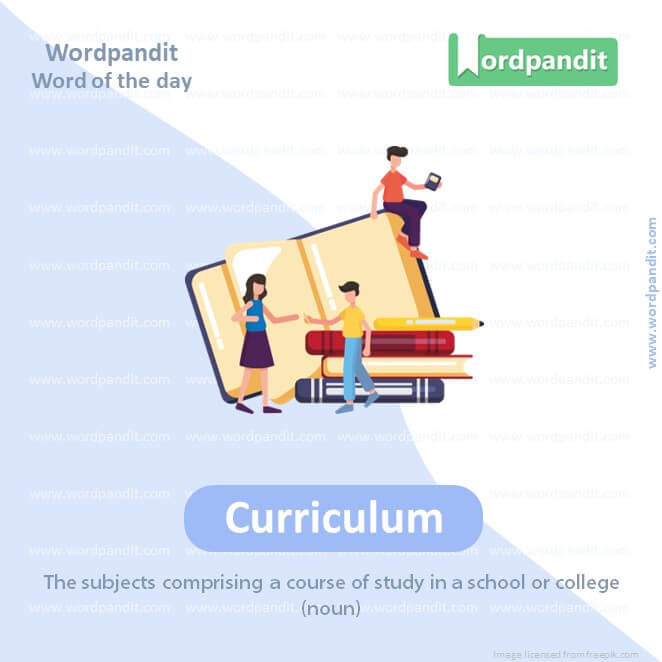
WORD-4: Curriculum
CONTEXT: I doubt the phrases “defund the police” or “decolonise the curriculum” would have generated the same support.
SOURCE: Guardian
EXPLANATORY PARAGRAPH: Curriculum is like a list of all the things you will learn in school, like math, reading, and science. It means all the subjects and lessons that students are supposed to learn in a school or course.
MEANING: The subjects comprising a course of study in a school or college (noun).
PRONUNCIATION: kuh-RIK-yoo-lum
SYNONYMS: Course, Syllabus, Educational program, Study plan, Course of study
USAGE EXAMPLES:
1. The new curriculum includes more science courses.
2. Teachers discussed the changes in the curriculum.
3. The school’s curriculum is designed to prepare students for college.
4. Art and music are important parts of the curriculum.
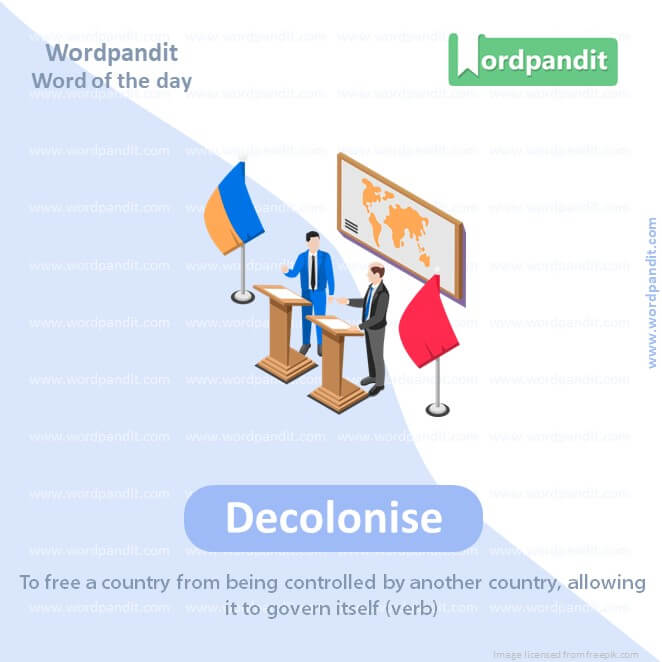
WORD-5: Decolonise
CONTEXT: I doubt the phrases “defund the police” or “decolonise the curriculum” would have generated the same support.
SOURCE: Guardian
EXPLANATORY PARAGRAPH: Decolonise is like when you have a big puzzle that was put together by someone else and you take it apart to make your own picture. It means to let a country that was controlled by another country become free and make its own decisions.
MEANING: To free a country from being controlled by another country, allowing it to govern itself (verb).
PRONUNCIATION: dee-KOH-luh-nize
SYNONYMS: Liberate, Free, Emancipate, Release, Unshackle
USAGE EXAMPLES:
1. The country fought to decolonise and gain independence.
2. Movements to decolonise were successful in many regions.
3. The history of the region is marked by the struggle to decolonise.
4. Decolonising their educational system was a major step for the nation.
WORD-6: Complacency
CONTEXT: The price of this complacency is already being paid in Ukrainian blood.
SOURCE: Guardian
EXPLANATORY PARAGRAPH: Complacency is like feeling so comfortable with the way things are that you don’t want to try harder or change anything. It means being satisfied with yourself or your situation, so much that you don’t think you need to change.
MEANING: A feeling of smug or uncritical satisfaction with oneself or one’s achievements (noun).
PRONUNCIATION: kum-PLAY-sen-see
SYNONYMS: Self-satisfaction, Contentment, Smugness, Self-approval, Nonchalance
USAGE EXAMPLES:
1. Complacency can lead to failure if one is not careful.
2. The team’s complacency cost them the championship.
3. After many successes, he fell into complacency.
4. The company’s complacency led to a decline in innovation.
WORD-7: Disparity
CONTEXT: Artillery isn’t everything, but the disparity speaks to Ukraine’s relative shortage of materiel, evident in other areas such as the number of drones it can field.
SOURCE: Guardian
EXPLANATORY PARAGRAPH: Disparity is like when you and your friend have different amounts of candy – you have five pieces, but your friend has only one. It means a big difference between two things, like how much candy each of you has.
MEANING: A great difference between things or people (noun).
PRONUNCIATION: dih-SPAR-i-tee
SYNONYMS: Inequality, Difference, Discrepancy, Imbalance, Gap
USAGE EXAMPLES:
1. The disparity in wealth between the two neighborhoods was striking.
2. There is a large disparity in access to healthcare in different regions.
3. The pay disparity between men and women is a serious issue.
4. Educational disparities remain a challenge for the government.
WORD-8: Flippant
CONTEXT: Despite the flippant observation – often made by European officials – that Russia’s economy is the same size as that of Italy, the Kremlin is producing more shells than all of Nato.
SOURCE: Guardian
EXPLANATORY PARAGRAPH: Flippant is like when someone makes a joke instead of being serious, especially when they should be serious. It means not showing respect or being serious about something important.
MEANING: Not showing a serious or respectful attitude (adjective).
PRONUNCIATION: FLIP-uhnt
SYNONYMS: Frivolous, Disrespectful, Light-hearted, Carefree, Irreverent
USAGE EXAMPLES:
1. His flippant remark offended his teacher.
2. She gave a flippant answer to a serious question.
3. Despite the situation, he remained flippant.
4. Flippant comments are often inappropriate in formal settings.
WORD-9: Feasible
CONTEXT: Ensuring Russia’s defeat in Ukraine is feasible, but it requires some important steps.
SOURCE: Guardian
EXPLANATORY PARAGRAPH: Feasible is like when you think you can build a big tower with your blocks because you have enough blocks and know how to do it. It means something is possible and can be done.
MEANING: Possible to do easily or conveniently (adjective).
PRONUNCIATION: FEE-zuh-buhl
SYNONYMS: Possible, Achievable, Doable, Workable, Practical
USAGE EXAMPLES:
1. It seems feasible to finish the project by next week.
2. The plan needs to be feasible for us to consider it.
3. She was looking for a feasible solution to the problem.
4. Building a new playground in the park is feasible.
WORD-10: Munitions
CONTEXT. Many of the munitions provided since the beginning of the war were purchased from the international market or drawn from stockpiles, and investment in European production has been slow.
SOURCE: Guardian
EXPLANATORY PARAGRAPH: Munitions are like the tools and equipment that soldiers use in battles, such as bullets and bombs. It means the things used in fighting during a war.
MEANING: Military weapons, ammunition, and equipment used in war (noun).
PRONUNCIATION: myoo-NISH-uhns
SYNONYMS: Ammunition, Arms, Weapons, Warfare equipment, Armaments
USAGE EXAMPLES:
1. The factory was producing munitions for the war.
2. They stored the munitions in a secure location.
3. The shipment of munitions was intercepted.
4. There was a debate over the sale of munitions to other countries.
Vocabulary Words with Meaning, Synonyms and Antonyms PDF
The voyage to language mastery often involves decoding the ‘vocabulary words with meaning, synonyms and antonyms PDF’. This valuable resource is a treasure chest of words, offering definitions, similar phrases, and contrasting expressions all in one place. Yet, recognizing the full potential of ‘vocabulary words with meaning, synonyms, and antonyms PDF’ entails more than just glossing over the words, it demands active and strategic engagement.
To uncover the richness of ‘vocabulary words with meaning, synonyms and antonyms PDF’, focus on understanding the context of each word, along with its synonyms and antonyms. Group words under themes to create word maps, linking synonyms and contrasting antonyms, for a better grasp of the material.
When delving into a ‘vocabulary words with meaning, synonyms and antonyms PDF’, use annotation tools for an interactive study experience. Make personal notes about each word and how you connect with it. This personalized touch aids in memorization and enhances recall.
To cement the learning from ‘vocabulary words with meaning, synonyms and antonyms PDF’, regular revision is pivotal. Spaced repetition, a learning technique where intervals between each review are gradually increased, can significantly enhance long-term memory retention.
The most crucial aspect, however, is practical application. The ‘vocabulary words with meaning, synonyms and antonyms PDF’ should act as a springboard for real-world application. Incorporating learnt words, along with their synonyms and antonyms, in conversations or digital interactions, reinforces understanding and boosts fluency.
In conclusion, navigating the ‘vocabulary words with meaning, synonyms and antonyms PDF’ is a cerebral adventure. A blend of contextual learning, annotation, regular revision, and practical application makes the journey a rewarding one. Grasping ‘vocabulary words with meaning, synonyms and antonyms PDF’ not only enriches your language skills but also adds vibrancy to your linguistic expressions.











